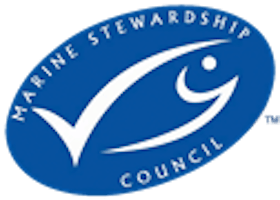A small-scale Indonesian fishery operating on small one or two-man boats using hooks and lines has successfully demonstrated its sustainability to the globally recognised standard set by the Marine Stewardship Council (MSC).
The North Buru and Maluku Fair Trade Fishing Association tuna fishery is the first handline yellowfin tuna fishery in the world and the second in Indonesia to be certified to the MSC Fisheries Standard.
The fishery in Buru, Maluku Province has been in a Fishery Improvement Project since April 2013. It was certified under the FairTrade USA Capture Fisheries Standard in October 2014. The Buru handline tuna fishery consists of 123 fishers who are organised in 9 FairTrade associations.
The Minister of Marine Affairs and Fisheries Republic of Indonesia, Edhy Prabowo said: “We’re extremely proud of seeing the first Indonesian handline yellowfin tuna fishery meet the highest standard for sustainability.
“Indonesia commits to support its small-scale fishers and sustainable tuna fisheries, and this MSC certification sets an example for other small-scale fisheries in Indonesia and around the world.”
Asia Pacific Director at the Marine Stewardship Council, Patrick Caleo said: “We congratulate Indonesia Handline Yellowfin tuna fishery and their partners for becoming MSC certified. They are demonstrating true leadership in sustainable fishing. To maintain their certification, the fishery will need to work with other fishing organisations and the Western and Central Pacific Fisheries Commission to agree to important management measures to safeguard yellowfin tuna stocks.”
Blane Olson from Anova Food LLC said: “The journey towards MSC certification has been a true collaboration between all parties of the client group as well as Yayasan Masyarakat dan Perikanan Indonesia and MMAF both provincially and nationally. Together we were able to implement fisheries improvement project activities such as data collection, vessel registration and co-management committees, in order to meet both the Fair Trade and MSC standard.”
The journey to sustainability
The customary fisheries management system created through the FairTrade associations helped to meet the MSC Standard requirements and shows how FairTrade can be an effective way for small-scale fisheries to achieve MSC certification.
Yayasan Masyarakat dan Perikanan Indonesia (MDPI), an independent foundation focused on achieving responsible and sustainable fisheries activities, has supported the fishery and provided support to local community development, environment projects, safety-at-sea training and fisheries management capacity building.
The assessment of the fishery to the MSC Standard was conducted by independent conformity assessment body, SCS Global Services and supported by the North Buru and Maluku Fair Trade Fishing Associations, Anova Food LLC, Coral Triangle Processors LCC, PT Harta Samudra and MDPI. An MSC assessment covers three core principles: fishery stock health, impact on marine environment and management of the fishery.
Yellowfin tuna have a dark metallic blue back, yellow fins and finlets and a yellow to silver belly and can live up to seven years. Tuna are a nomadic species found throughout the world’s oceans and are some of the fastest swimmers in the ocean.
MSC recognises and rewards sustainable fishing practices and is helping create a more sustainable seafood market. Currently, 15 per cent of global marine catch is MSC certified.
For media enquiries please contact:
Semhar Tesfu, PR Manager, MSC
semhar.tesfu@msc.org
Mobile: +44 (0) 752617 5936
About the Marine Stewardship Council
The MSC is an international non-profit organisation which sets a globally recognised, science-based standards for sustainable fishing and seafood traceability.
The blue MSC label on a seafood product means that: it comes from a wild-catch fishery which has been independently certified to the MSC’s science-based standard for environmentally sustainable fishing; it is fully traceable to a sustainable source. It can be found on more than 100 species of seafood in 100 countries. msc.org.
Publish your content with EB Publishing
It's about who you reach. Get your news, events, jobs and thought leadership seen by those who matter to you.











